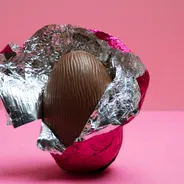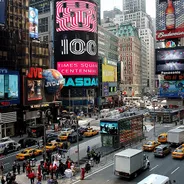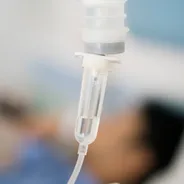With an all-nighter on the horizon and the idea of brewing a coffee too much to handle at that particular point, many of my university days were spent with a six-pack (or more) of Red Bull by my side. That way, I could get my assignment done (or finish off that video game) by the time the morning rays began to peek through the darkness.
But as I crushed cans of glorious energy drink into a wastepaper basket, I knew in the back of my adolescent mind that I was probably not doing something entirely great for my health. You don't have to be a nutritionist to know that drinking that much sugary caffeine is a bad idea. You don't even have to have watched the Inbetweeners.
But even if you don't have an exam the next day and you've got a tough digestive system, new studies have revealed even more downsides to energy drinks which have nothing to do with poop.
Studies have already linked the likes of Red Bull or Monster to stomach, nerve and heart problems, but a research team from the University of Texas says its findings are among the first to fully understand the mechanism linking an increased risk metabolic syndrome to the energy drinks you consume.
They found that having just one can of the stuff could narrow your blood vessels in just 90 minutes, and that restricts blood flow to vital organs, leading to not-fun health problems like heart attacks or strokes.
For the study, the team looked at 44 students from the McGovern Medical School that is part of the University of Texas - all non-smokers in their 20s, all classified as 'healthy'. Researchers wanted to test the effect of energy drinks on the endothelium, a layer of cells lining the surface of veins, arteries and other blood vessels.
Testing endothelial function before the test subjects drank a single 24-ounce energy drink and 90 minutes afterwards, the team found that the internal diameter of blood vessels was nearly half as big as 90 minutes prior, on average. But why did this happen?
The team suspect that this could be due to the ingredients in most energy drinks (eg. caffeine, sugar, taurine and other herbals). High blood sugar, for example, has been shown in previous studies to cause vasoconstriction (the narrowing of blood vessels), leading to less blood reaching vital organs.
"As energy drinks are becoming more and more popular, it is important to study the effects of these drinks on those who frequently drink them and better determine what, if any, is a safe consumption pattern," says Dr John Higgins, a professor of medicine at the McGovern School where this experiment was carried out.
The findings from this study (and from two other studies carried out in April 2017 and February 2018) will be presented and discussed further at the American Heart Association's Scientific Sessions 2018 in Chicago, which will take place later this November.










